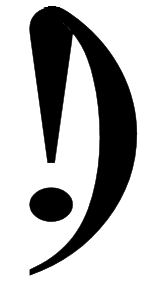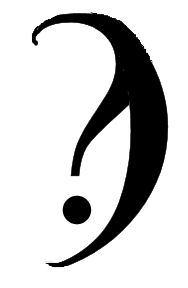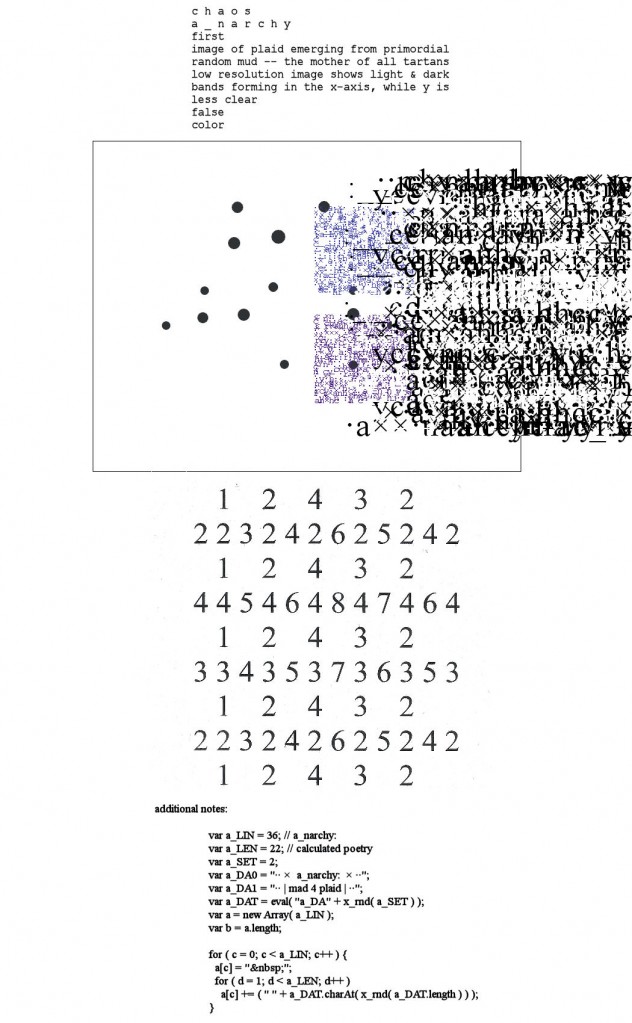Archive for December, 2009
Entry 60 — #717 through #720
Thursday, December 31st, 2009
Nothing much going on in entries 717 through 720 from my old blog. The best thing in them was this aphorism of mine from #720:
. Sometimes my inferiority complex gets so bad, I think I’m God.
I was thinking about bi-polarism because an interesting chap calling himself “Bipolar Guy” had gotten in touch with me.
In #717 I listed the three major elements of intelligence in my knowlecular theory of psychology, accelerance, charactration (under its now obsolete name of “character”) and accommodance and defined them. In #718 I mumbled about how few visitors my blog gets and in #719 I mentioned an idea of Dan Waber’s–doing a character-sketch daily for a year, a fun idea but not something I thought I’d be able to do, and my latest Shakespeare Authorship Question experiences.
Nothing more, mainly because I’m wrecked, having played tennis for my senior men’s doubles team. Ordinarily coulbes woul dnever tire me, but I have a bad back, a bad knee, and a bad hip, all of which I’ve been trying to rest. Didn’t want to play but our team had only 6 players available, including me, for three matches, so I hadda. I gimped through a touch match against our opponents’ number three duo. It was thrilling. Really. We had the first set in the bag, 5 -1, but lost four in a row. Then we lucked out a victory, but lost the next game. I was shot by then, really hoping only to get the thing over with. But I actually ran in to get a few short shots that I hit for winners and we won the tie-breaker. Next set we lost the first game and were out of it from then on, losing 6-2. Because we’re old, we didn’t play a third set, instead bumbling through a ten-point tie-breaker. All I can say is that they were a little more eager to lose points than we, and we won–on a put-away by . . . tah dah, ME. The others on the team who had played and finished, plus several wives and players on our team unable to play but there to root, yelled, “Bobby, Bobby, Bobby!”
Our team is now 16 and 5, and either in second place or tied for first, depending on how the one team ahead of us in the eight-team league made out.
Entry 59 — Degrees of Absolutism
Wednesday, December 30th, 2009
Just a few unexciting Philosophical Thoughts today, just to record them somewhere.
There are, in my opinion, four or more kinds of absolutes:
1. Philosophical–an absolute 100% certain, usually by definition–e.g. 1 + 1 = 2. Not applicable to the physical universe.
2. Scientific–an absolute not 100% certain (in the universe as we know it perceptually) but so close to it as to be effectually an absolute with regard to the nature of the universe–e.g., Newton’s laws.
3. Historical–an absolute about what happened in the past not as certain as a scientific absolute but certain beyond rational doubt-e.g., that Shakespeare was the author of the works attributed to himm and Napoleon lost the Battle of Waterloo.
4. Literary-Critical–an absolute about the meaning of a literary work less certain than a historical absolute but certain beyond reasonable doubt–e.g., Keats’s “Ode to Psyche” is about Psyche and Nostrodamus’s writinghad nothing sane to do with the current political situation in the middle east.
I term absolutes 2 through 4 “effectual absolutes.” I believe an effectually absolute explanation of everything is possible. All that is needed is suffcient data.
Entry 58 — On the Value of Explicating Poetry
Tuesday, December 29th, 2009
I seem to be in a minority among poets, especially visual poets (who are generally much more visual artists than verbal artists, or word-people) in that I enjoy explicating poetry. The other day, while stuck on an explication of a poem by daniel f. bradley for Small Press Review, I e.mailed him asking him for help on it–although I’ve known for years that he’s not very interested is discussing poetry, his or anyone else’s. So I was not surprised when he declined my appeal. Nor that he thought a work should stand by itself, without explanations.
I think his attitude probably a good one for a poet to have. Analysis can take up energy that could be used creatively. On the other hand, it’s . . . inconsiderate. Sometimes a hint about what an artist is up to in a work can make the difference between an engagent of the work’s taking away a lifetime’s appreciation from it and getting nothing out of it. The hint may even open the engagent to a whole kind of art he never would otherwise have enjoyed.
I’ve always felt, too, that when an artist seriously tries to explain his work, the explanation may constitute a second work perhaps as valuable as the first. Why should a poetic description of the moon necessarily be more valuable that a critical description of a poetic description of a moon?
I’ve said all this before. But it was on my mind again.
Entry 57 — Minimalist Poem Sequence by Endwar
Monday, December 28th, 2009
#699 through #715 of my old blog are all about the anthology of visio-textual art Crag Hill and I co-edited ten years or so ago, Writing To Be Seen. I do an entry on one piece by each of the contributors and a few miscellaneous ones. Rather than run them again here, I’m going to put them all together as an essay in the Pages section to the right. It’ll start off being a jumble but eventually will get organized, as with several still-disorganized pages.
To make this entry more than just an announcement, here is the sequence of minimalist permutational infraverbal poems (subverse, in his jargon, which I believe he got from his and my pal, Will Napoli) by Endwar that I featured in #716:
Oh, and a second announcement: today I began, and almost completed, my column for the next issue of Small Press Review. No big deal except that it’s a chore I’ve tried to get to every day for at least two months. I feared I’d never do it! Really. I hope my getting to it means I’ll start being at least slightly productive again. There’s so much I need to get done.
.
. add
. read
. a lie
. realize
. a verb
. reverb
. a mind
. remind
. a vision
. revision
. apt
. repeat
. a sign
. resign
. all
. real
.
Oh, and a second announcement: today I began, and almost completed, my column for the next issue of Small Press Review. No big deal except that it’s a chore I’ve tried to get to every day for at least two months. I feared I’d never do it! Really. I hope my getting to it means I’ll start being at least slightly productive again. There’s so much I need to get done.
Entry 56 — New Typographical Symbols
Sunday, December 27th, 2009
Entry 55 — 4 Sonnets by Mike Snider
Saturday, December 26th, 2009
In my old blog entry #695, I presented a new version
of a sonnet I’d long been trying to write for Dylan
Thomas, another failure. In my next two entries I
had much better sonnets, all by Mike Snider, which I
commented on:
28 December 2005: Several weeks ago, my sometime
poetics foe at New-Poetry, Mike Snider, was kind
enough to send me a (signed!) copy of his chapbook,
44 Sonnets. Its first poem is this:
.
Petulant Muse
Another Sonnet? Baby, have a heart…
Try something multi-culti — a ghazal! –
Or let me really strut my stuff and start
An epic — Sing! Muse — oh, we’ll have a ball!
You’ll be important when we’ve finished it –
Just think — your name on Stanley Fish’s lips,
Our poem tausht in Contemporary Lit,
The fame of Billy Collins in eclipse!
And talk about commitment! I’ll be yours
For years! If we get stale, then, what the fuck?
My sister Callie knows some kinky cures
For boredom. You should see … no, that would suck.
Just fourteen lines, and then I get to rest?
I think our old arrangement’s still the best.
.
I’d call this a serious light poem. By that I mean it’s clever
and fun and funny, but intelligent, with some involvement
with consequential Artists’ Concerns. In any event, I love
the consistent tone and the way it dances intellectuality
and academicism into its mix with its references to Fish,
the ghazal (Arabic poem with from 5 to 12 couplets, all
using the–good grief–same rhyme) and to Calliope, the
muse of epic poetry, the Internet just told me (the narrator
I would guess to be Thalia, the muse of comedy and of
playful and idyllic poetry). It feels like a painting of Fragonard
to me, which I mean as a compliment.
29 December 2005: Here are three more sonnets from Mike
Snider”s chap, 44 Sonnets:
.
The Fall
When we’d pile in my great-aunt’s Chevrolet
And drive to see the trees turned red and gold,
Grandma would scowl. “Reminds me of death,” she’d say.
“It means that everything is getting old.”
“Now, Helen, ‘ after winter comes the spring.’”
But she’d have none of that. “It came and went
For you and me, Sister.” And then she’d sing
“Go, tell Aunt Rhody,” just for devilment.
I have her picture, nineteen, sure to break
The heart of every man she ever met –
Another from her fifties, in a fake
Nun’s habit sucking on a cigarette,
And both are faithful. Grandma, you were right.
There’s nothing grows in Fall except the night.
.
Homework
My daughter’s learning how the planets dance,
How curtseys to an unseen partner’s bow
Are clues that tell an ardent watcher how
To find new worlds in heaven’s bleak expanse,
How even flaws in this numerical romance
Are fruitful: patient thought and work allow
Mistake to marry meaning. She writes now
That Tombaugh spotting Pluto wasn’t chance.
Beside her, I write, too. Should I do more
Than nudge her at her homework while I try
To master patterns made so long before
My birth that stars since then have left the sky?
I’ll never know. But what I try to teach
Is trying. She may grasp what I can’t reach.
.
What I know
Always, always, always, I know this first–
My dearest girl is gone, my daughter Lee
I loved not well enough to keep with me–
Of all the things I’ve failed to do, the worst.
Her poet mother’s supple brain was cursed
To learn the language of pathology.
When surgery failed they turned to drugs and she
Began to dream of torture, dreams she nursed
To memories of children murdered by
Her fathers and her mother and her will.
I could not hold her to the truth. She found
At Duke a doctor who decided I
Was fondling Lee. The judge said no, but still
She took my Lee and held her underground.
.
I posted these on the date of this entry, then wrote
over the entry, so lost it. I seem to do something like
that every three or four months, I don’t know why.
The remarks I lost were penetrating, I’m sure, but I
remember them only vaguely. One thing I remember
is marveling at how smoothly well these poems (and
the rest of Snider’s poems in his book) carry out the
aims of Iowa plaintext lyrics–but employing rhymes
(note, for example the abbaabba of the last one’s
octave!) and fairly strict meter. Ergo, they deal
sensitively with common human situations and end in
effective epiphanies, all more or less conversationally–
but with the plus of the significantly extra verbal
music that meter and rhyme can provide.
One value of being forced to re-type, and re-consider
a poem one is critiquing, as I’ve had to do with these,
is that it can sometimes lead to an improved interpretation.
That’s what happened to me just now. For who knows
what reason, I didn’t realize that the persona of the poem
was writing poetry, so had him working on astronomy. So
I missed the wonderfully fertile juxtaphor (implict metaphor)
of writing verse for astronomy (and the ones of either for
doing homework, or learning in general). And of poems for
the sky-charts–explained sky-charts–of astronomy. All
this along with the now stronger explicit comparison of the
father’s work toward mastery of poetry with his daughter’s
toward mastery of schoolwork, and the simple, conventional,
but not pushy moral of the poem, “trying is what counts.”
Consequently, I now count this poem a masterpiece; the
others are “only” good solid efforts. Good brief character
studies, too.
In my lost comments, I mentioned the value of formal
verse to its engagents for finding an order for life’s
difficulties–and suggesting that they, like similar difficulties
timelessly made into similar art, will pass. I also referred
to the pleasure an engagent of a sonnet or other piece
of formal verse, when effective, will get from the poet’s
dexterity–like someone listening to a fine pianist playing
Rachmaninoff, say, getting both musical pleasure, and a
kind of (voyeuristic, sub-behavioral kinesthetic) pleasure
from his physical skill at the keyboard. I’m sure I came up
with a somewhat origianl third value, but now I can’t
remember what it was. No doubt, it will become famous
as Grumman’s lost insight the way Fermat’s lost proof did.
Entry 53 — Christmas Poem by Ted Warnell
Thursday, December 24th, 2009
Entry 52 — Some Conventional Haiku
Wednesday, December 23rd, 2009
Today’s entry is a repeat of one from Christmas day, 2005, with a few comments from today at the end of it:
25 December 2005: “clenched sky.” That’s one of the scraps in the notebook yesterday’s entry was about. Circa 1983. Never got into any poem of mine but may yet. Another scrap is the start in fading cursive of a sonnet I completed somewhere else on Dylan Thomas. I was momentarily quite taken by what the word, “steepled” did to its fifth line, “by his construction of a steepled truth,” for it took a while for me to realize the word was not “stupid.”
Other highlights include the following five unpublished haiku:
rain now as loud
against the northern side of the house
as the roof
rotting log
only part of forest floor
to show through melting snow
glimpsed tanned shoulder;
thin white string across it,
tied like a shoelace
bikini-bar dancer
showing off to her boy-friend,
me in between them
far enough from the storm
nearing the color-dotted beach
to see above it
I wrote these about the time I pretty much stopped writing conventional haiku. I quite like the storm one, probably because I still vividly remember the first Florida storm I saw from far enough away to see above–and to both sides–of it. I don’t think it’s a truly outstanding haiku, though. The one about the bikini dancer is fair in the wry sardonicism vein, I think. The one about the bikini string is nearly not a haiku, for it doesn’t really provide any haiku contrast; i.e., it’s a single-image description. On second thought, maybe it’s excitement versus the mundane: girl in bikini versus shoelace.
I dunno. The other two are very standard, but I’ve tried to improve them,anyway:
the rain now louder
against the house’s north side
than on the roof
rotting log:
only portion of the forest floor
to show through the snow
The first is slightly haikuish in the way it obliquely discusses a wind; the second re-uses a very over-done haiku theme, to wit: life goes on, or–more specifically–winter snow won’t win; but the theme is slightly warped toward freshness with the use of something a reader will take to represent a cohort of winter rather than a counter to it, until he realizes the cause of rotting.
Also in the notebook this bit of High Sagacity: “The Eastern Wise Man attempts to reduce his awareness to the size of his experience; the Western Wise Man attempts to increase the size of his experience to the size of his awareness.” Yep, I’ve always been Eurochauvinistic.
From today:
rotting log;
nothing else of the forest floor
showing through the snow.
Entry 51 — “Crackers”
Tuesday, December 22nd, 2009
A sloshily sentimental new Poem poem of mine:
Crackers
Sadness occasioned by the expensive crackers
she particularly liked and Poem
would have bought her because they were on sale
dissolving into the shimmer of the
supermarket parking lot’s cars, itself dissolving
in the reasons in the still-extant
memories of the first human beings
that our species shall endure.
It’s pure sincerity, and entirely based on reality–
the crackers part–but . . . ?




